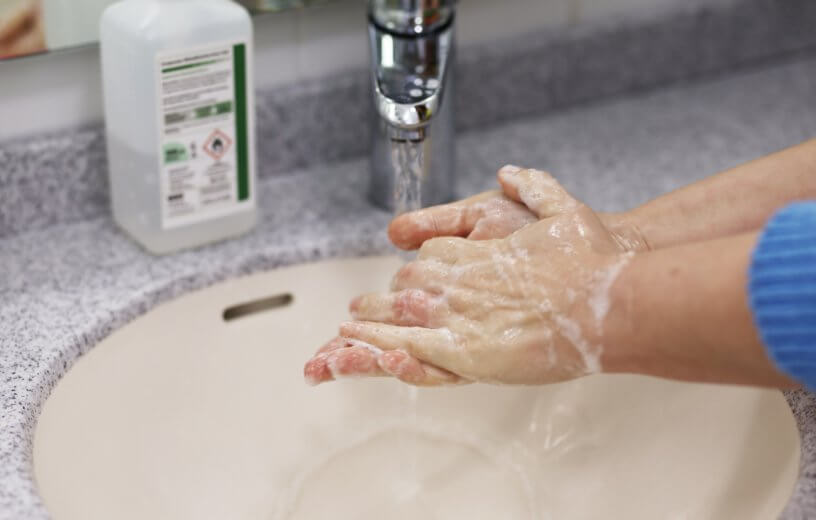If 60 percent of the world’s airport visitors washed their hands properly, the study’s authors estimate that the spread of viral infections would slow by 70 percent!
CAMBRIDGE, Mass. — You’ve heard it thousands of times over the past month at this point: wash your hands! It can seem like an insignificant gesture in the face of everything that’s been happening in the world, but according to a recent MIT study, the power to make difference is quite literally in the palm of your hand. Researchers say it’s especially true for people traveling through airports, where a stunning number of passengers are boarding planes with bacteria-covered hands.
Ironically, this research was actually conducted before the coronavirus appeared in China towards the end of 2019. Nonetheless, at the time researchers concluded that improving the rate of hand-washing at just 10 major airports would seriously hamper the spread of viral diseases. The more often and carefully travelers wash their hands the harder it will be viral infections to spread.
Just because the research was conducted before Covid-19 came on the scene, that doesn’t make the message any less relevant. MIT researchers say this study is even more important considering the world’s current state.
First of all, people in general need to practice better hygiene at airports. These are places where people from all over the world are gathered in one place and touching doorknobs, surfaces, armrests, kiosks, etc. Despite all that, only an estimated 20% of airport visitors have clean hands, researchers say. “Clean hands” are defined as hands that been washed via soap and water for at least 15 seconds, within the preceding hour.
“Seventy percent of the people who go to the toilet wash their hands afterwards,” comments Professor Christos Nicolaides PhD ’14 of the University of Cyprus, a fellow at the MIT Sloan School of Management, in a press release. “The other 30 percent don’t. And of those that do, only 50 percent do it right.”
If around 60% of the world’s airport visitors were to wash their hands properly, the study’s authors estimate that the spread of viral infections would slow by 70%! Unfortunately, even the researchers say it is unrealistic to assume travelers will be this hygienic. That’s why they decided to narrow their scope to just 10 of the most relevant airports associated with the initial location of a new viral outbreak.
For example, if travelers in December 2019 arriving and departing from 10 of Wuhan, China’s closest airports were extra vigilant with their hand-washing, it may have slowed the spread of the coronavirus by 37%.
To make these estimations the research team employed a series of complex epidemiological simulations. These simulations were fueled by a wealth of data including worldwide flight durations, distance, interconnections, estimated airport waiting times, and airport interaction (with both other people and objects) estimates.
Even just a 10% increase in cleanliness at 10 major airports could stop a virus’ spread by up to 24%.
“Eliciting an increase in hand-hygiene is a challenge,” Nicolaides says, “but new approaches in education, awareness, and social-media nudges have proven to be effective in hand-washing engagement.”
These recommendations are inline with what the WHO and CDC have been preaching all along. Hand-washing is our first line of defense against viral disease.
Additionally, the study identified 120 airports that appear to be the biggest offenders when it comes to spreading disease. Surprisingly, however, those airports aren’t always the ones with the most traffic. Airports in Tokyo and Honolulu were mentioned specifically. These airports are by no means the biggest, but they seem to disproportionally contribute to the spread of disease because of the direct connections they offer to some of the world’ largest and busiest airports, their long-range direct international flights, and the fact that they are located precisely between the global East and West.
The study’s authors recommend that airports install more hand-washing sinks throughout their terminals and make sure all surfaces are cleaned more frequently.
The study is published in Risk Analysis.
